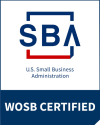Using Special Education Fundingto Help Your Child
Jean Murrell Adams, Esq.

Times are tough for families during the COVID-19 era. Many are struggling with job uncertainty, food insecurity and health anxiety. Paying for tutoring, therapy and other supports for a child with a disability may simply be out of reach for some. Now, more than ever, parents must learn how to access school district funding for their children with special education needs.
Free means FREE.For over 40 years, special education laws have guaranteed qualifying children with disabilities a free, appropriate, public education (FAPE). Free means FREE! Special education and related services must be provided without charge. Prior to these laws, millions of children with special needs were excluded from public school and denied access to accommodations and supports. Parents were forced to pay for expensive private schools and services if they could afford them. Our current laws are meant to ensure that all children have free access to public schools, including charters. School districts and charter schools must also pay for related services that include transportation and developmental, corrective, and other supportive services necessary to assist a child with a disability to benefit from special education.
Where does the money come from? Well, actually, it comes from you. Your tax dollars pay for special education as part of a mishmash of federal, state and local funding. In California for example, approximately $4Billion each year is earmarked for special education. Another $1Billion is funded by the federal government and the balance comes from local taxes. Therefore, parents who hire pricey private tutors and therapists for their children with special needsinstead of tapping into school district funding, are essentially double-paying. While there may be very good reasons for this, parents should be informed and weigh their options. You have been taxed for these public education services for years. Use them.
What’s covered? Special education law is intentionally broad and inclusive regarding the education, services and supports that school districts and charters must provide for free. That’s important because, among other things, special education needs vary from one child to another and can change from year to year. Here is just a small sampling of free educational and related services:
- Assessments and Evaluations.
- Special Education Schools and Residential Placements.
- Educational Therapy and Tutoring.
- Speech and Language Services.
- 1:1 Trained Aide.
- Legal Fees.
Private testing in areas such as academics, learning disabilities or mental health can cost hundreds or even thousands of dollars. But parents are generally entitled to a free independent educational evaluation (IEE) if they disagree with a school district assessment. This free “second opinion” is an important right as it helps determine a child’s unique needs and guides educational programming. Send a written request for an IEE to your child’s IEP case carrier. The school district or charter school must respond within a few weeks to notify you of their decision. Also, review your school district’s Notice of Procedural Rights or Notice of Parent Rights which it is required to provide to every parent of a qualifying child with a disability. The Notice should provide details on how to request an IEE.
Your child’s school district must pay for a special private school, nonpublic school or residential placement if it is unable or unwilling to meet his special education and related needs, regardless of the cost. The school district must also cover parent transportation, hotel and per diem costs for scheduled visitations. It may be difficult convincing a school district that your child requires this type of placement and there are a number of preconditions for reimbursement. Consult with an advocate or attorney in your area for direction.
Teachers often recommend that parents hire a tutor to help their child with special needs. However, the costs of specialized educational therapy and tutoring can quickly add up. Once again, free means free, at no charge, cost-free, gratis, etc. If your child requires specialized instruction in order to make meaningful educational progress, your school district or charter school must provide it or pay for it. Request appropriate testing (remember the free IEE) to determine the focus, frequency and duration of instruction appropriate for your child. Then take your request to the IEP team. Keep in mind that special education law does not direct schools to maximize your child’s potential with the “best” services, however services and supports must be “appropriate in light of the child’s circumstances.”
Many parents struggle to find speech therapy, social skills groups and communication-related hardware and software for their children. They often use private insurance, dip into savings or turn to grandparents to pay for these programs. But services like speech, health, physical therapy, counseling, ABA therapy, transportation, parent training etc. that assist a child with a disability to benefit from special education are free. Ask the experts (now you see why IEEs are so important) to guide you on what related services are appropriate for your child and insist that they be designated in her IEP.
Come children require the assistance of an aide or paraeducator at school or on the bus in order to access their education and participate in an inclusive environment. Parents may be asked to sit with their child in the classroom or accompany her on field trips. While volunteering is great—it should never be a substitute for a fully-trained 1:1 aide for your child at district expense. Keep a log of your child’s behaviors or other unique needs that require 1:1 assistance. If appropriate, request a free functional behavioral assessment from the school district to determine the type and level of 1:1 aide service for your child. Pro tip: ensure that the assessor is a certified behaviorist and that all aides are properly trained in working with students with disabilities such as those of your child. As with all related services, double-check your child’s IEP to make sure the type, frequency and duration of service is clearly listed.
Even the best laws are useless if there is no way to enforce them. Special education law provides for “fee-shifting” in order to give all parents access to free legal help. Essentially, if parents of a child with a disability are successful in challenging school districts and charter schools in special education cases, then their reasonable legal fees must be reimbursed. Retaining an attorney to help you fight for your child should be a last resort. However, it’s important to know your options. For information on how to connect with a lawyer in your area, review our post on Fighting for Your Child – When It’s Time to Call a Lawyer.
Please continue to stay in touch. We’d love to hear your stories on how you have been managing with providing supports and services for your child during shelter-in-place. Contact us at: Together@adamsesq.com with your feedback and stories. Your experiences can guide us in identifying topics to address in future articles and webinars. You also may want to readand repost our past COVID19-related blogs:“Forget About the Toilet Paper—Grab that IEP!”, “IEP Alerts for Parents” and“Special Education Teaching is Really Hard!”

